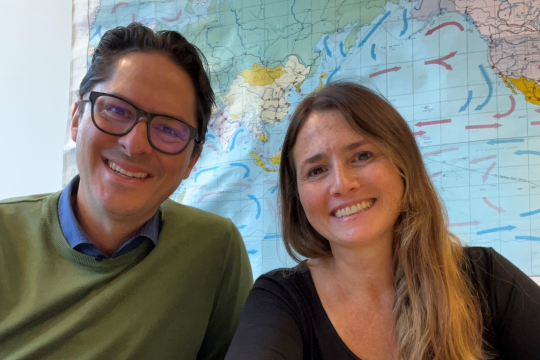The cooperation between Wageningen University and Research (WUR) and EfD was formalized on July 1 when the university’s application to become an official partner was approved. The partnership brings about many benefits, such as extended collaboration and more synergies.
Wageningen University is, among others, well-known for its expertise in connecting economics with applied life sciences.
“We are environmental economists who work closely together with researchers in fields such as environmental, animal, and plant science. We bring the economic perspective to explore nature's potential in improving the quality of life,” explains María Naranjo Barrantes.
Amazing network
She is based at Wageningen and has previously worked at EfD Central America. She is also a member of the EfD collaborative program Women in Environmental Economics for Development (WinEED).
“EfD is an amazing network and its solid platform in developing countries is very valuable for us. We look forward to working with local partners, writing research proposals, and seeking funding opportunities together,” says María Naranjo Barrantes.
Accelerate sustainable pathways
One joint project that will kick off already this fall is a 4-year project funded by Horizon Europe funding called Transformative pathways for synergizing just biodiversity and climate actions. Partners in this project are Wageningen University, EfD Central America (CATIE), and EfD Ghana (ENRRI).
“The project aims to identify leverage points and associated interventions for triggering and enabling transformative changes at the level of consumers, producers, and organizations, thus accelerating diverse transformative pathways towards biodiversity-positive and climate-proofed societies, she says.
Unlimited possibilities
EfD’s partner center at Wageningen University is based at the Environmental Economics and Natural Resources Group (ENR), where Professor Francisco Alpizar, is the chair. The partner center also incorporates scientific staff from Section Economics, as well as senior expertise from Wageningen Economic Research.
Current cooperation between WUR and EfD has focused on EfD’s collaborative program Sustainable Consumption and Production (SCOPE). However, there are no limitations to how this partnership can evolve over time.
By: Petra Hansson
